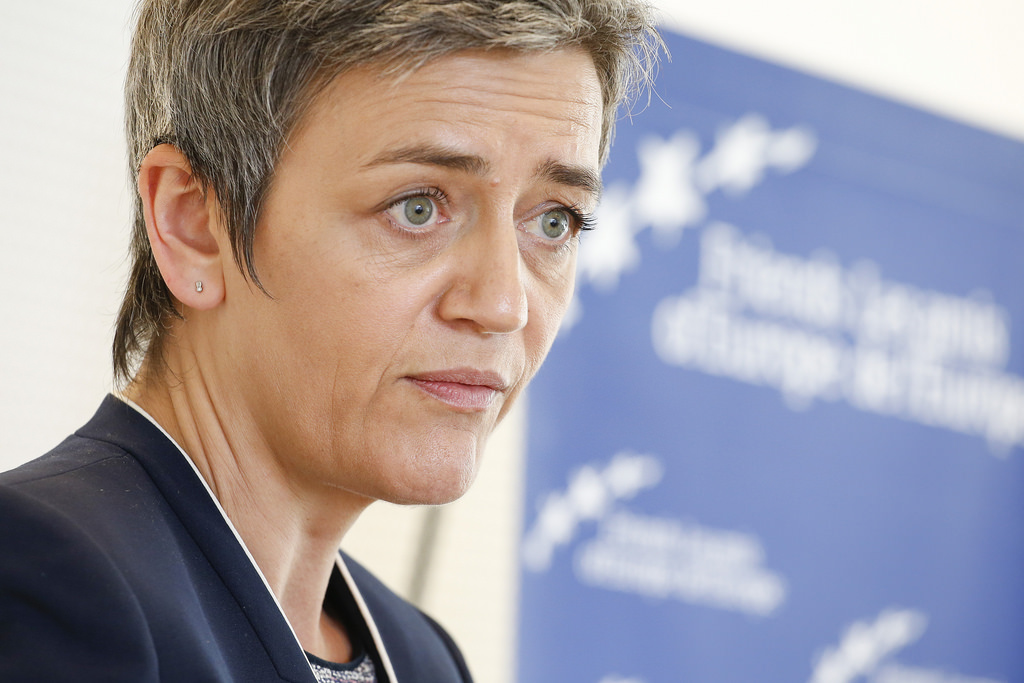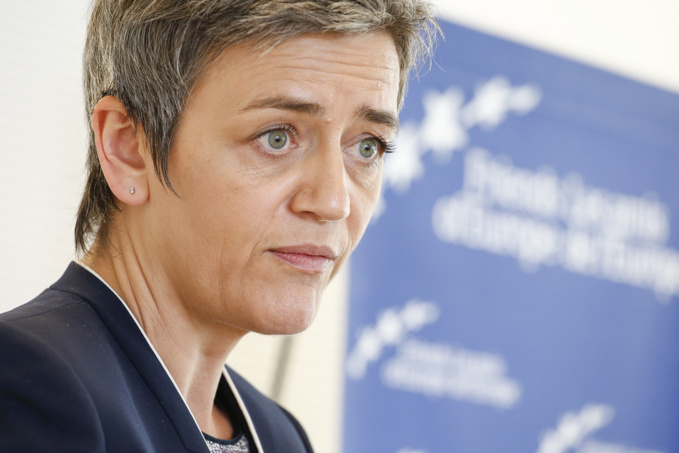This severe decision was taken by Margrethe Vestager, whose five-year tenure as the main defender of competition in the position of Commissioner of the Antimonopoly Commission of the European Union was marked by a ruthless attitude towards the Silicon Valley technology companies. Over the past two years, the Commission has demanded that Apple pay $ 15 billion in taxes to Ireland. Google was granted a separate fine of $ 2.8 billion for abuse of dominant position through an application for purchases.
But there is also a bigger battle, which Vestager has not yet entered. This is the question of how Google and Facebook use personal data of billions of people to become leaders in the online advertising market. In 2017, according to the investment division of WPP GroupM, these two companies accounted for 84% of global spending on digital advertising, except for China.
Issues of antimonopoly legislation, respect for privacy and personal data are increasingly getting intertwined as the global economy is converging with the web environment. And since the GDPR, the new EU regulation, emphasizes importance of personal data as a valuable class of assets, the private life of citizens is increasingly connected with the antimonopoly mandate of officials like Vestager.
However, despite her stern attitude toward the Silicon Valley and reluctance to use cookies trackers applications, she has not yet spoken out about this.
The main difficulty for her is the use of a bureaucratic institution in an attempt to keep pace with rapidly changing technologies and even more volatile business models. It seems that she is going to waits until a sufficiently substantiated complaint. The detection of data abuse is a major task, but the initial complaint, supplemented by evidence, would at least specify it.
Thomas Vinier, a Brussels-based partner of the law firm Thomas Vinje, who specializes in EU anti-monopoly legislation, says that despite Vestager’s reputation as a fighter in the technology field, she was actually "too cautious and reserved" in the exploitation of these users. Her reasoning against Google, for example, entirely lies within the standard antitrust laws of the EU. But from the point of view of facts and law, it is quite ordinary in comparison with the "Germany vs. Facebook" case.
Vestager can have enough time to fight. Her term as Head of the Antimonopoly Commission expires in October 2019, but she stated that she was ready to stay in office for another five years. Yet, she is quite cautious. In an interview with Forbes, Vestager avoided direct answers about prosecution of technology companies for improper use of data. In her TED speech in September 2017, she barely mentioned the data, focusing on a broader and more abstract issue of building trust in society.
Despite wide experience in solving complex legal issues, Vestager's influence may be insignificant if she decides to ignore the problem of data monopolization. "One can argue that today the Commissioner focuses on small problems that do not have a great economic impact on consumers," Vinje said. - Antimonopoly legislation should develop and move forward. The European Commission is not expanding its borders."
source: forbes.com
But there is also a bigger battle, which Vestager has not yet entered. This is the question of how Google and Facebook use personal data of billions of people to become leaders in the online advertising market. In 2017, according to the investment division of WPP GroupM, these two companies accounted for 84% of global spending on digital advertising, except for China.
Issues of antimonopoly legislation, respect for privacy and personal data are increasingly getting intertwined as the global economy is converging with the web environment. And since the GDPR, the new EU regulation, emphasizes importance of personal data as a valuable class of assets, the private life of citizens is increasingly connected with the antimonopoly mandate of officials like Vestager.
However, despite her stern attitude toward the Silicon Valley and reluctance to use cookies trackers applications, she has not yet spoken out about this.
The main difficulty for her is the use of a bureaucratic institution in an attempt to keep pace with rapidly changing technologies and even more volatile business models. It seems that she is going to waits until a sufficiently substantiated complaint. The detection of data abuse is a major task, but the initial complaint, supplemented by evidence, would at least specify it.
Thomas Vinier, a Brussels-based partner of the law firm Thomas Vinje, who specializes in EU anti-monopoly legislation, says that despite Vestager’s reputation as a fighter in the technology field, she was actually "too cautious and reserved" in the exploitation of these users. Her reasoning against Google, for example, entirely lies within the standard antitrust laws of the EU. But from the point of view of facts and law, it is quite ordinary in comparison with the "Germany vs. Facebook" case.
Vestager can have enough time to fight. Her term as Head of the Antimonopoly Commission expires in October 2019, but she stated that she was ready to stay in office for another five years. Yet, she is quite cautious. In an interview with Forbes, Vestager avoided direct answers about prosecution of technology companies for improper use of data. In her TED speech in September 2017, she barely mentioned the data, focusing on a broader and more abstract issue of building trust in society.
Despite wide experience in solving complex legal issues, Vestager's influence may be insignificant if she decides to ignore the problem of data monopolization. "One can argue that today the Commissioner focuses on small problems that do not have a great economic impact on consumers," Vinje said. - Antimonopoly legislation should develop and move forward. The European Commission is not expanding its borders."
source: forbes.com



















